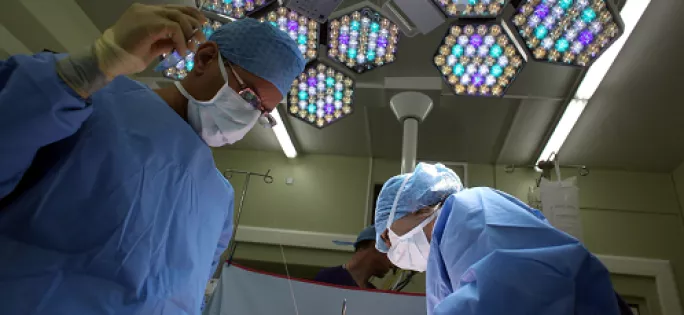Medical schools should work with primaries and children from disadvantaged homes to encourage a wider range of students to consider a career as a doctor, new guidance says.
The recommendation was put forward by the Medical Schools Council today, which underlined the importance for universities to take part in outreach work to increase their intake of students from poorer families.
Primary school pupils should have the opportunity to meet with figures working in medicine, visit universities and take part in medical workshops, the guidance suggests.
The advice comes after a number of medical schools have already been using contextual data to pinpoint promising students from lower socio-economic backgrounds.
The practice - which can involve bright pupils from low-performing schools obtaining an interview on the basis of slightly lower grades - has prompted controversy and claims of “social engineering”.
But a report from social mobility tsar Alan Milburn in 2012 said that medicine still “lags behind” other professions in terms of widening access. It said it had “a long way to go” when it came to “making access fairer, diversifying its workforce and raising social mobility”.
Nearly a quarter of all medical and dental undergraduates were educated at private schools, it said.
Today’s new guidance, which advises universities to use student ambassadors, start early with outreach in primary schools and provide help with subject choices, says: “Medical schools and their partners need to respond as narrow social groups still dominate medicine (as in other professional roles).
“Medical students are the doctors of tomorrow and it is important we ensure that the brightest and best feel able to apply to study medicine.”
The guidance was produced as part of the Medical Schools Council’s Selecting for Excellence project - which was set up in 2013 to look at selection methods to medicine courses. It will publish a final report in December, which will include its findings on the effectiveness of using contextual data in admissions.
Professor Tony Weetman, chair of the project’s executive group, said: “A candidate’s journey to a medical degree starts long before the UCAS application is made. The commitment in terms of hard work and academic achievement is of course essential, but before that must come the awareness that studying medicine is an option.”
The guidance was produced with the support of the Office for Fair Access, which oversees universities’ efforts to improve access to higher education.
Its director, Professor Les Ebdon, said: “This guidance represents a major development in helping to improve access to the elite medical profession.
“Going to medical school opens the door to a career in a rewarding, high-status profession and that door should be open to everyone who has what it takes to be an excellent doctor, regardless of their background.”
Related stories:
University fair access quotas are ‘so wrong’: 16 August, 2013
University support for poorer school leavers must not ‘stop at the front door’: 7 July 2014




